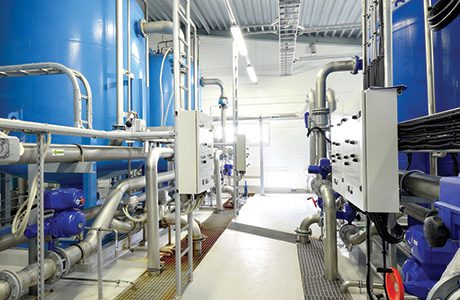
Businesses operating their own boiler, engine or generator for heat or power urged to check if they must register with SEPA
Businesses that have been operating their own boiler, engine or generator for the production of heat or power are being urged to check whether they need to register with Scotland’s environment regulator as soon as possible.
The Medium Combustion Plant Directive (MCPD), which is designed to improve air quality by setting emission limits for sulphur dioxide, nitrogen oxides and dust, is being introduced in stages. All new boilers, engines and generators (known as plant) that started up since 20 December 2018 should already have a permit. Those that started before that date are classed as existing plant and must now apply if they meet the criteria and are not already permitted.
Applications are open and the Scottish Environment Protection Agency (SEPA) has published a new webpage with a walk-through guide to help businesses understand if the legislation is relevant to them and, if it is, what they have to do; when they have to do it by; and how the regulator can help.
All existing plant with a net rated thermal input between 5 and 20 megawatts (MW) of power must apply to SEPA by 30 June 2023. This means there will be enough time for the regulator to assess their application, set emission limits within their permits – and for the operator to take action to meet these limits before 1 January 2025.
Those on a site that already has a Pollution Prevention and Control (PPC) permit will be sent an information notice by SEPA to allow it to vary the permit to include conditions.
Different timescales are in place for existing plant between 1MW and 5MW.
Victoria Reeves, from SEPA’s PPC Permitting Team, said:
“It’s important that Medium Combustion Plants in Scotland are permitted with us, so we can set limits on the levels of pollutants that these plants can emit. We’ll also set periodic emissions monitoring requirements so businesses can demonstrate they are compliant and are doing their bit to improve air quality.
“We would urge anyone operating a boiler, engine or generator to produce their own heat or power to check whether they come under these regulations. This isn’t just about industrial processes – large buildings including offices, shopping centres, hotels, hospitals and prisons can often run MCPs, and we want to make sure they understand their obligations.
“Due to the different timescales for different sizes, and the fact some will be registered under an existing PPC permit, we’ve created a new webpage with a walk-through guide to make it as easy as possible for businesses to understand what is expected of them. And of course, if anyone is unsure they can contact us for advice and guidance to make sure they’re doing the right thing.”
SEPA’s webpage also includes information on exclusions and exemptions, advice on how to apply, a list of definitions and a series of frequently asked questions.
MCPs can be a significant source of air pollution. It is estimated up to 2,000 are in operation in Scotland, and many will be coming under SEPA’s regulation for the first time. Emission limits set in permits will depend on type, size, age, fuel type and annual operating hours. These are important changes aimed at improving air quality and reducing the potential risk to human health and the environment.





